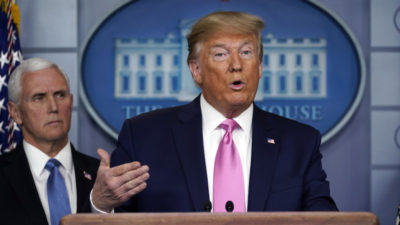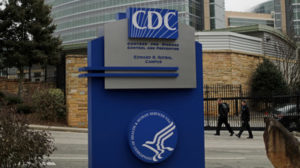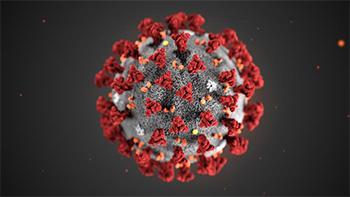Georgia faces a couple of immediate challenges in its preparation for a potential coronavirus outbreak here.
One is true for many states: The process for testing patients for the disease is, at best, very slow.

The Georgia Public Health Lab recently received a diagnostic test kit from the CDC for COVID-19 (the name for the new coronavirus), but like those sent to other states, its components were flawed.
“We are waiting on new components from CDC, once we get them it will take about a week to do quality assessment and quality control to be sure everything works as it should,’’ said Nancy Nydam, a spokeswoman for the state Department of Public Health.
The second challenge — at least potentially — is funding. No special state funds have been allocated to fight COVID-19. The White House, though, has submitted a funding request to Congress. The federal funding is expected to go to additional testing capacity to identify cases, development of a vaccine and treatments for the disease, more personal protective equipment, and money for states to quarantine people and treat cases, officials said.
The Department of Public Health is confronting state budget cuts that are expected to impact local health agencies. But a spokesman for Gov. Brian Kemp, Cody Hall, said that budget reductions “do not in any way affect the Department’s ability to respond to a potential coronavirus case here in Georgia. If any emergency were to arise, the Department has a comprehensive plan in place to protect the public with significant state and federal funds at their disposal.”
Nydam said that in developing agency budget cuts, the state and local epidemiology areas were spared. “Most of our current expenses are coming out of our Federal Emergency Preparedness Funds, which we expect to continue and to in fact increase in this federal fiscal year,” she added.
Georgia has reported no COVID-19 cases. About 200 individuals linked to recent international travel here are “self-monitoring’’ at home for possible symptoms of the disease. The number fluctuates as people complete the 14-day monitoring period and as more people are added based on lists the state receives from Customs and Border Protection, Nydam said.
Government response
The agency said Wednesday that it’s providing information and guidance about COVID-19 to all Georgia health care facilities and holding weekly calls with the medical community to update information and answer questions.
State epidemiologists are on-call 24/7 to help health care providers evaluate individuals presenting with symptoms of COVID-19 to ensure that possible cases are managed safely, Public Health said.

“We urge Georgians to prepare for hurricanes or flooding or take measures to prevent flu, so preparing for an outbreak of COVID-19 is no different,” said Dr. Kathleen Toomey, Public Health commissioner. “DPH is working to make sure our health systems, first responders and county health departments have the resources they need to respond to a COVID-19 outbreak.”
Also Wednesday, President Trump announced he has appointed Vice President Pence to head the administration’s response to the coronavirus crisis. Trump said aggressive public health containment measures and travel restrictions had successfully limited the spread of coronavirus in the United States.
But news of a California case has alarmed health experts.
The CDC said a person in California who was not exposed to anyone known to be infected with the virus and had not traveled to countries in which the virus is circulating, has tested positive for the infection.

It may be the first case of community spread in the U.S., the CDC said Wednesday.
“At this point, the patient’s exposure is unknown,” the CDC statement said. “The case was detected through the U.S. public health system and picked up by astute clinicians.”
The patient is one of 60 confirmed cases of the virus in the U.S., Health and Human Services Secretary Alex Azar announced Wednesday. Forty-two cases are former passengers on the Diamond Princess cruise ship, the site of a recent virus outbreak. Most of the other 15 were travelers coming back from China or their spouses. Three others were repatriated from China.
Worldwide, the number of confirmed coronavirus cases have exceeded 80,000. More than 2,700 deaths have been linked to the virus.
Test kit problem
Testing capacity is limited in the United States.
The CDC is manufacturing new test kits for states such as Georgia. Although a dozen states are capable of testing for coronavirus infection, confirmatory tests must still be done by the CDC, a process that can take days, the New York Times reported.
NPR reported Thursday that the CDC and FDA have resolved the problem with the testing kits.
Forty labs across the U.S. are already authorized to start using the modified test, and all 93 labs should be able to start testing by next week, Azar said.

Gov. Kemp said he’s participated in two calls with President Trump’s team and leaders from public health agencies and governors. He said he’s also in touch with county officials, the AJC reported. “We’ll be ready for whatever comes. Hopefully it won’t be much, but if it, is we’ll be ready to respond to it,” Kemp said Wednesday.
Public Health said that if necessary, it may recommend community mitigation measures for affected Georgia communities, such as temporary closure of child care facilities and schools, and postponement or cancellation of mass gatherings.
Businesses should consider strategies to reduce the impact of a potential COVID-19 outbreak on their workforce, including teleworking and cross-training employees on essential job functions, Public Health said.
Meanwhile, Emory University said that a nonprofit biotechnology company owned by the university launched a GoFundMe charity campaign Thursday to help accelerate testing for its antiviral compound that could potentially be used to treat the new coronavirus.
While a related treatment, administered via injection, is being evaluated for COVID-19 in China, Drug Innovation Ventures at Emory’s approach is focused on an oral pill. Having an effective treatment for COVID-19 in pill form would allow the treatment to be more easily distributed to patients around the globe, which is a vital component in ending the epidemic, Emory said.

